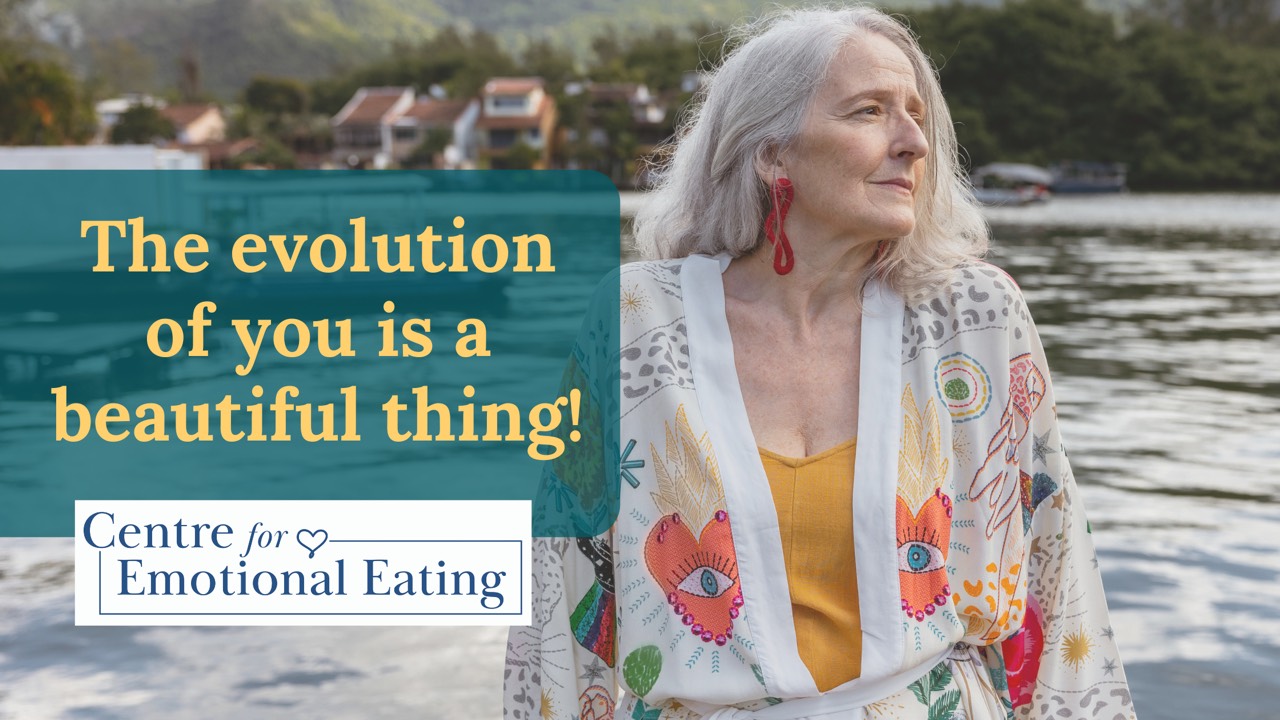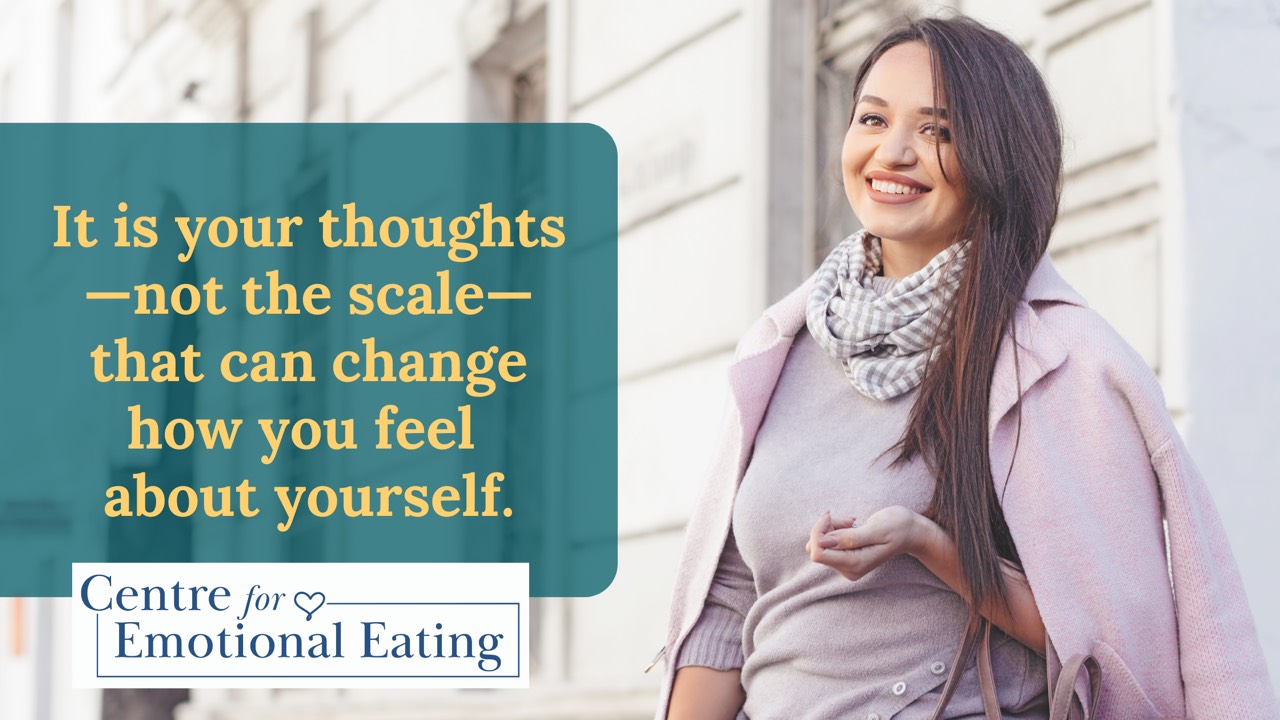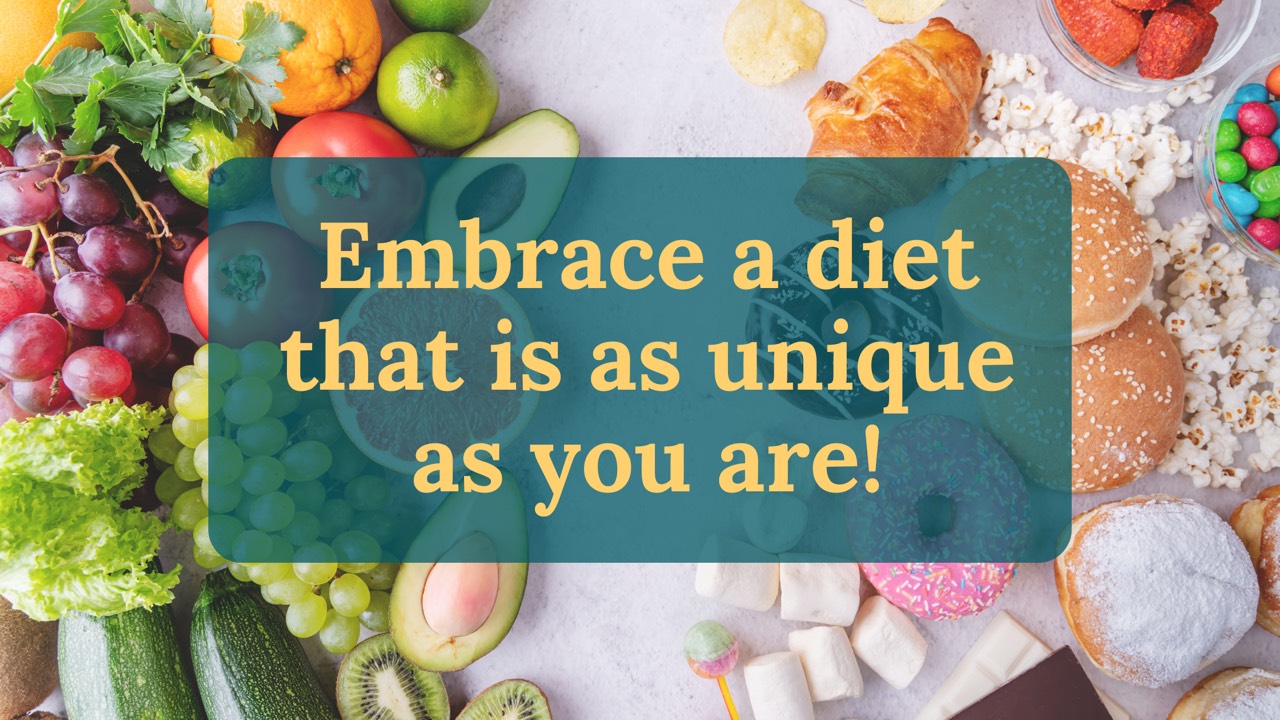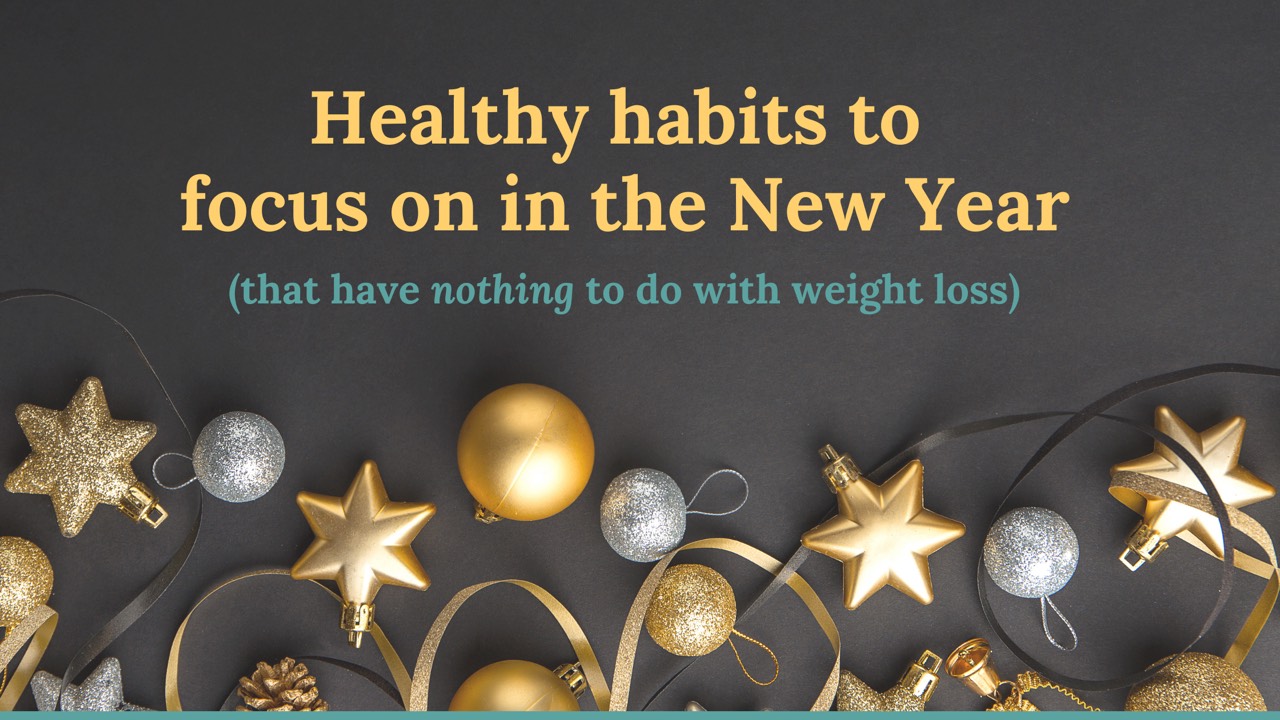BLOG
Find support not just for emotional eating, but all aspects of your well-being.
There Are No Negative Emotions

As an emotional eater you might feel like you can identify emotions as either good or bad.
Hope, joy, satisfaction, those must be good because they make you feel positive and present.
Anxiety, sadness, anger, those must be bad because they feel uncomfortable and challenging.
This is called black-and-white thinking or sometimes referred to as all-or-nothing thinking. Chances are you learned this way of thinking from family and society. Were you ever told to hide what you were feeling to make others more comfortable? Or maybe you were told that emotions are weak or to “put your big girl pants on.” Just like labeling foods as either good or bad, approaching emotions the same way doesn’t allow for the truth: that there is a much more neutral, or grey, area.
Let’s reframe! What if instead of thinking of certain emotions as bad, you replace that thought with a neutral one like “there are no bad emotions.” This neutrality means we’re not pretending to be happy or applying a toxic positivi...
Finding Some Comfort While Grieving

We’re told that grief has stages that we move through, that there is an end to the process. But the truth is much more complex than that. While its intensity can lessen over time, there are often triggers, sometimes unexpected ones, that bring up feelings in new and painful ways.
And while grief is a common experience, it is still a topic many feel uncomfortable talking about. For example, if you’ve lost someone you love, others in your community might not know how to talk to you about it even if you want to keep the conversation—and memory—of your person present. Others often worry they are making you feel worse you by asking how you’re coping.
If you are struggling with grief right now, we want you to know there is no right or wrong way to move through it. To start, reach out to someone you trust or get support from a therapist to help guide you. You might be surprised how freeing it feels to have a safe space to cry or rage. This can create a release of emotions that you don’t hav...
Why You Shouldn’t Fear Change

One of the interesting (and powerful!) things of becoming an adult is realizing that you can continue to evolve as you age. It is through discovering new parts of ourselves—likes/dislikes, values, and desires—we start to grow into a new version of our identity.
The more time you can spend doing things that make you feel good—work that is fulfilling, friendships that support you, movement that revitalizes you, clothing that reflects your aesthetic—the less you are likely to reach for food to fill those needs. You’ll never be able to do away with all the unpleasantness of life (bills need to be paid), but having things you look forward to can help ease emotional eating when these stressors do come up because you have something positive to rely on.
But all this personal growth, leaning more into and learning more about yourself, can feel both comforting (you’re not stuck!) and destabilizing (it feels new and overwhelming). You might notice feelings of sadness or grief crop up as who you...
Aligning Your Values with Your Relationships

When it comes to supporting our mental health, we tend to start with the big things: the quality of our sleep, what we eat, going to therapy, taking medication. This can lead to more confidence and awareness which are powerful tools! But you might also begin to notice that working on yourself has shifted your relationships with others in ways you didn’t expect.
As you implement changes in your life and your perspective shifts, you might find you grow annoyed or feel critical towards others you usually have felt ok around. You might even feel like you can’t show or talk about who it is you’re becoming. Your immediate reaction might be to blame yourself, piling on the guilt that you’re a “bad friend” or a “bad person” because you’re thinking about others differently, even critically.
If you dig past those uncomfortable feelings, you’ll notice that it isn’t about them, but that getting clearer on your values (and setting boundaries that go along with them) means you no longer align with...
How Mindfulness Can Help with Emotional Eating

From easy-to-use apps to therapy practices, mindfulness seems to be an ever-present technique for managing our fast-paced world. But is it more than just a buzzword? Research shows that being more mindful can reduce stress and anxiety, alleviate depression, support your physical health, and more!
In today’s blog post, we’re breaking down just how you can implement this powerful tool into your life with just a few minutes at a time.
What is mindfulness?
Mindfulness is bringing awareness to the present moment. This looks like tapping into what your body is feeling, what thoughts or feelings are floating to the surface, and what you can see and feel (like the sunshine on your face). That might sound intimidating—especially if you’re someone who eats to avoid intense emotions—but acknowledging sensations, smells, and in the present moment means you can let go of anxiety of the future or grief over the past.
How can it help me with my emotional eating?
Emotional eaters often reach for ...
Client Insight: “I lost weight, but my brain still criticized my body size.”

The following blog posts talks about weight loss. If this is something that might bring up negative feelings for you, please skip this post to protect your mental and physical health.
Weight loss can happen for all kinds of reasons, from anxiety to happiness to stress to a change in routine. So, it should come as no surprise that emotional eaters come in all shapes and sizes! What I often hear from clients who have lost weight on their journey is that they still find themselves criticizing their body in the same way as when they weighed more.
Does that surprise you?
Many people I work with at the Centre for Emotional Eating believe that if they could just “get a handle” on their emotional eating that everything would all into place—their waistline would shrink, they’d be a kinder person, get that promotion, they’d finally do that thing they’ve always want to.
This is why dieting is so tempting: it markets itself as a cure-all when in reality it keeps you stuck in failure mode beca...
Client Insight: “My emotional eating led to weight loss—it was celebrated, but I felt awful.”

It’s true that we never really know what someone else is going through. We’ve covered in another post how not all emotional eaters are overweight, and sometimes emotional eating can lead to weight loss in an unexpected way.
For some clients, when emotions run high, they feel the need to control their eating as a way of trying to control their lives. For them it feels like the only thing they have power over is what they put in their mouth—not their kid’s tantrum, their boss’s feedback, or their partner’s attitude.
While in this scenario there is an absence of food, instead of a binge, it is still emotional eating because a person’s eating pattern has changed in response to emotional experiences. For example, this can look like telling yourself you’re too busy to eat, believing you’re not worthy of nourishment, not having motivation to cook and eat, or feeling a physical surge of anxiety that makes your stomach queasy. Experiencing these actions long enough can lead to weight loss.
T...
How to Plan for a Death Anniversary

The anniversary of the death of a loved one comes with its own unique challenges. Unlike birthdays or weddings, the day your loved one passed is a focal point for your grief and can bring all the feelings of loss right back to the surface.
While you might expect the day to be difficult, you might find engaging in some sort of memorial—big or small—can be a lovely way to honour their memory and support your own mental health.
There are so many ways you can honour your loved one! To get you thinking about what might be helpful for you, here’s a list of 10 things you can do to remember your person. You can either choose to do something by yourself or with others—the choice is completely up to you and there is no right or wrong way to mourn.
- Hold space to let out the emotions—cry, rage, whatever! Sometimes a sad playlist or movie will allow the tears to flow, other times you might want to sweat it out at the gym.
- Visit their final resting place. Bring flowers, read a poem, or simpl ...
What is a Non-Diet Approach? (And how to get there!)

A non-diet approach can mean freedom from:
… food rules.
… an obsession with weight and body measurements.
… grueling workouts you hate.
… guilt and shame around what you choose to eat.
Sounds pretty good, right?! Our bodies are so much more than calories in/calories out. Even if you worked out and ate the exact same as your friend, you both would still look and feel different. In fact, a non-diet approach acknowledges that every person’s body is different and there is no one-size-fits-all way of eating or looking (the opposite of what diet culture wants you to think!).
A non-diet approach believes that every person is unique and that your body knows what it best for it—this goes for eating and movement. You might have come across terminology like “intuitive eating” or “mindful movement”, which is just a way of saying that you turn inwards to be aware of your own needs and bodily cues. For example, your cravings could reveal vitamin deficiencies or you might find certain movement...
3 New Year’s Resolutions That Aren’t About Your Weight

January always has that fresh feeling! There are 12 months to come and the possibilities feel endless. This might give you the knee-jerk feeling to set all the goals, including weight loss ones. You might be thinking, in this atmosphere that feels like anything is possible, that *this* year is the one you “lose the weight for good.” You’ve made a grocery list, thrown out the last of the holiday foods, and you signed up for that new gym membership.
But did you know that about 95% of diets fail? January might feel new and exciting, but many weight loss resolutions end before it even becomes February. That’s because restriction sets you up for binge eating—it becomes a cycle where you are depriving yourself “on the wagon” and then feel out of control when you give into cravings.
Instead of focussing on the number on the scale, here are examples of New Year’s resolutions to support your mind, body, and soul!
Add happiness habits.
You’ll notice this one is about adding in new things, in...


